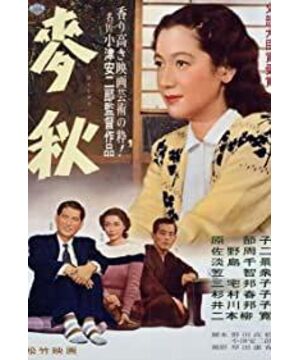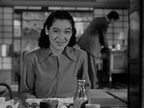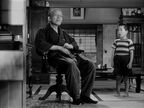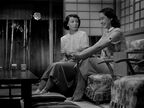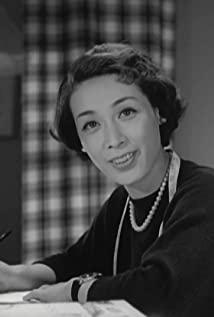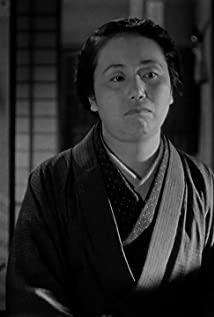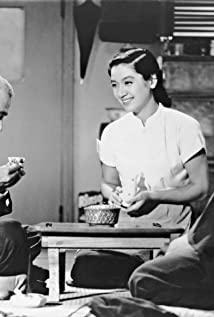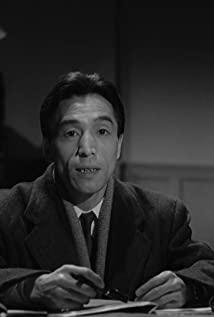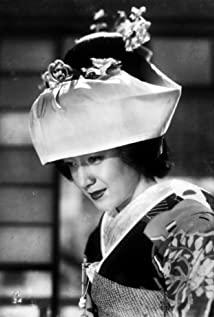This film is still about marrying a daughter, but compared to the peaceful, balanced and harmonious "Saury Smell", "Late Spring" and "Autumn Harmony" that I have seen before, this film has a rare and clear conflict . Ozu also seems to be more concerned about discussing some issues, such as the collision between the independent temperament of postwar women and traditional culture, such as what marriage and love mean to women.
Noriko and Ayako are very unique post-war Japanese women with modern consciousness in the film. The heroine's age is set at 28 years old. Compared with the heroines in other films who are 24 or 5 years old and married in their splendid years, Noriko looks a bit bleak, just like the older leftover women in China today. Independent of several female companions who yearn for married life and are married, they always dress in Western style on various occasions, and have never worn kimonos. Even the marriage scene that Ozu loves to show was dealt with in the dark in this film, so we can't see the image of the bride in kimono. When facing a female partner who has entered into a loving husband and wife relationship, Ayako expresses her love for independent life and her disdain for marriage. Noriko smiled at all kinds of difficulties, but she knew in her heart that she wanted to find a suitable candidate. For them, marriage is as natural as eating. The only difference is that they make choices based on their own understanding of happiness. In the process, they regard marriage more as a personal matter. It is evident that the agreement to the marriage is negotiated.
Such women will have certain conflicts with traditional concepts. The older brother, played by Tomokaru Kasa, openly ridiculed his sister for not being able to marry, and was very fond of Manabe, whose older sister was 12 years old but quite wealthy. Sister-in-law and parents are more out of love for Noriko, but they also believe that marriage is not a person who can make the decision, and the consent of the family should be obtained. However, these obstacles were eventually overcome with gentle wind and drizzle, and the family members slowly moved from gloomy clouds to peace and happiness.
What does the marriage of a daughter mean to the family? Although her parents and brothers have been worrying about Noriko's marriage, they hope she can have a family of her own as soon as possible. However, after accepting the fact that Noriko was going to marry Yabe, the family did not seem to add a trace of joy. Instead, Noriko cried sadly when she was about to say goodbye to her family. After Noriko got married, her parents no longer lived with her elder brother, and moved to Daejeon with her elderly uncle, which was a bit sad at night. The marriage of the daughter means the separation of a native family and the departure of a family member, which means that the previous scene of a big family living with beauty will not be repeated. But even so, the "marriage" of a woman of the right age is as irreversible as the way of heaven, and no one has ever doubted it.
What does a woman's marriage mean to her? Noriko, as a woman in a suit, also actively looked for candidates without a crush, and finally "discovered" Yabe by her side, and successfully sent herself into marriage. However, for her, marriage is a decline in the quality of life - "no more expensive cakes". Compared with financial constraints, she will also face the difficulties of the role of stepmother. In fact, the women in the film clearly realize that marriage actually deprives them of it. However, no one chose the other way because they had no doubts.
The image of the child is very cute in this film. The real world of adults is clearly separated from children. The cake should be eaten quietly, and Ayong is not allowed to be present when talking about the marriage of the children. Everything seems to belong to the secrets of adults, and it is a taboo world that children cannot touch. The image of this pair of brothers is extremely successful. The younger brother always listens to the instructions of the elder brother, and is even stupid enough to follow the elder brother's words and call his grand-uncle "stupid". This film also cutely presents the image of a very old man, my grandfather, who usually seems deaf and blind, but in fact his heart is as clear as a mirror. Grandpa and grandfather, father and uncle who died in China, brother and Ayong, the love of brothers has different endings because they were born in different eras.
Ozu's films always show his warm interpretation of family, and meticulous respect for life, as well as people's safety in fate and status quo.
View more about Early Summer reviews


